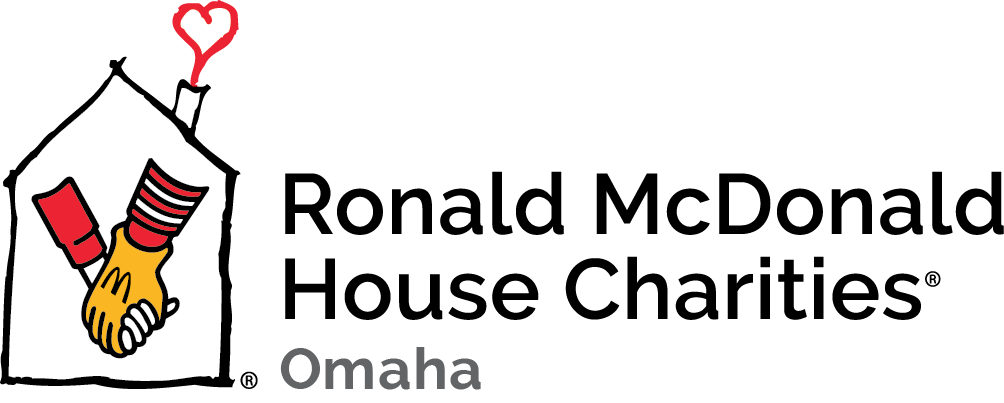Songs and Celebrations: Finding Silver Linings
It’s a warm spring afternoon, and the singer at the front of the venue belts out “You Belong with Me” as the audience cheers and sings along. It’s the 13th day of the month, and at the conclusion of the song, everyone sings “Happy Birthday” to the star of the show. As the evening wears down, she exits the stage with a smile emblazoned across her face, greets her family with hugs, and they all head back to their temporary residence, hundreds of miles from home.
For the Lucquete family, life has often been scary. But for that night, for that moment, they got to see 12-year-old Neely, recently discharged from a six-month hospital stint, less than a year removed from receiving six transplanted organs, recovering from chemotherapy, typically introverted and reserved, holding the microphone in front of a park full of strangers, having the time of her life. Fearless.
Neely Lucquete is the second-oldest of four children, living in Austin, Texas with her parents, Josh and Kathleen, or Kat. Spend any amount of time with them, and you’re bound to smile. Josh is affable and attentive, a natural-born storyteller with a hint of a southern drawl and expressive eyes that regularly glance at one or more of the kids to ensure they’re doing okay. They are a fun-loving, close-knit family, and Josh says, “We celebrate often.” 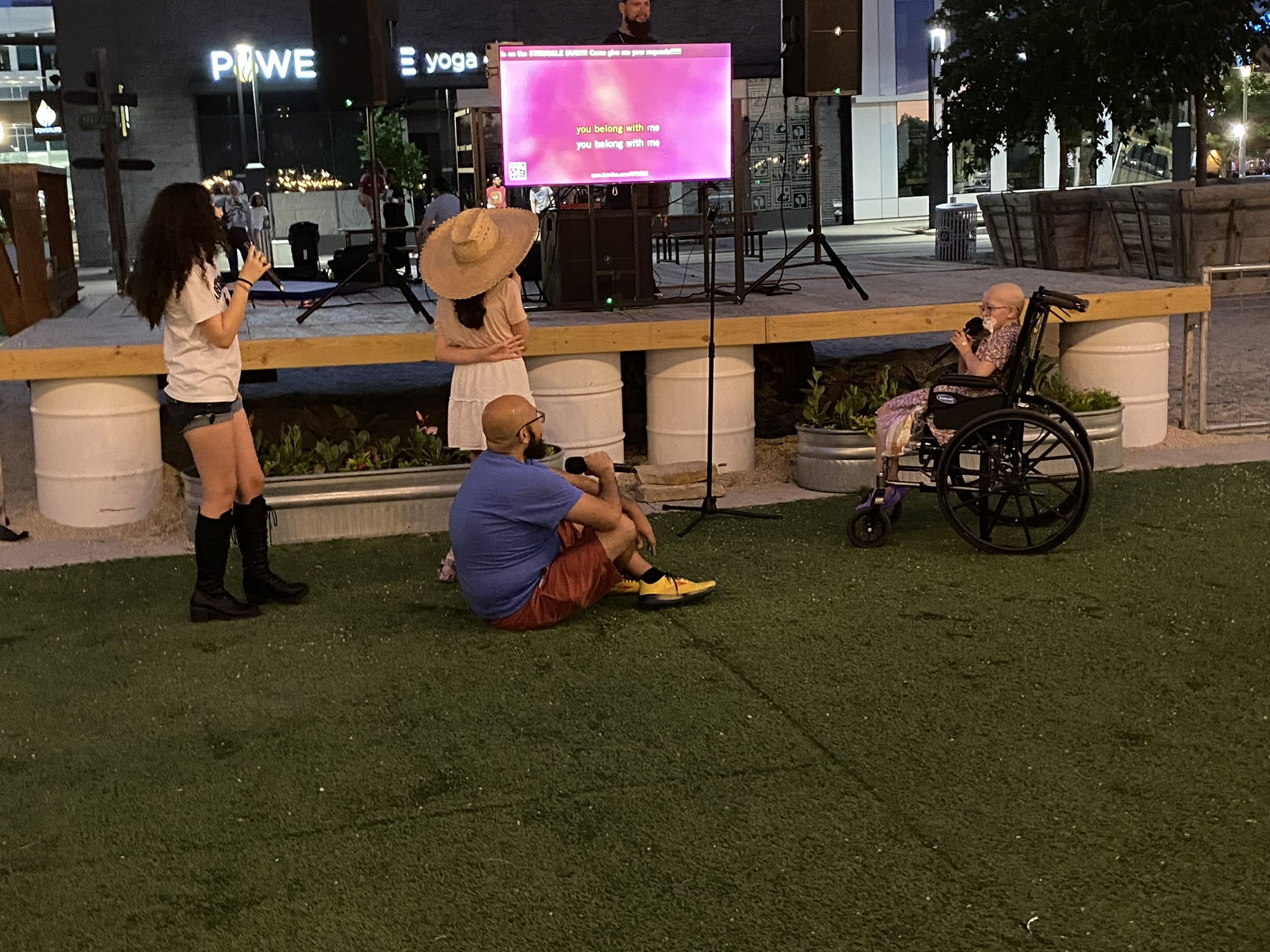
Despite the fact they’ve been away from home for seven months, beginning with a 17-degrees-below-zero arrival in mid-January. Despite Neely’s condition requiring careful monitoring and precautionary steps before any activity. Despite how difficult it is to juggle the needs of six family members in the midst of a medical emergency for one.
“All that we really care about, honestly, is that we’re okay. That we’re together.”
When Neely was born more than a decade ago, the doctor atypically pulled the couple into a small meeting room. Immediately, Josh thought, “something is going on.”
They explained that the baby had Hirschsprung’s disease, a condition that, essentially, prevents the digestive system from doing its job. While it is treatable with an initial surgery and regular medical care, there is no cure, and its effects can be felt for years, if not a lifetime.
What was going through Josh’s mind when he heard this diagnosis?
“Fear.”
He says it was hard to understand everything he and Kat were being told, about short bowel syndrome and that their child would need to rely on total parenteral nutrition (TPN) instead of food by mouth. It all seemed so abstract.
Thankfully, the surgery went well, and while it took the family a couple of years to get their feet under them, they eventually got a handle on Neely’s care.
It was possible she would eventually need a multi-organ transplant, but for the time being, Josh said they looked at that option as more of a backup plan, “because life was good. We figured stuff out.” On top of that, intestinal transplants being combined with the other organs affected was a relatively new procedure, so the Lucquetes opted for the devil they knew; they didn’t want to trade what they had for something with less certainty.
As time went on, however, that possibility became more likely. TPN is a life-saving treatment for people with compromised intestines, but it also takes a toll, particularly on the liver. While Neely had been listed for transplant early in her life, her situation was never dire enough to require the procedure. It wasn’t until the last year or two when it became untenable.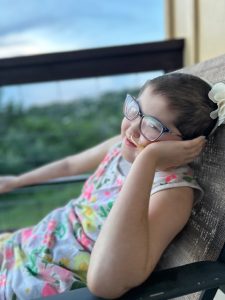
The family heard one of the leading hospitals for this type of transplant was in Omaha, at Nebraska Medicine. In the summer of 2023, with Neely’s condition worsening, she was flown to Omaha for a transplant evaluation. Says Josh, “our backs were up against the wall, her chances [of surviving without transplant] were pretty rough at the time.”
She was approved for the transplant and received a liver, pancreas, small bowel, large bowel, and two kidneys.
While Neely recuperated, a hospital social worker presented the family with a lodging option with which the family was only vaguely familiar. Josh says a friend had stayed in a Ronald McDonald House with a sick child several years ago, who greatly appreciated the support he and his family received. And the Lucquetes had stayed for a night in another Ronald McDonald House once during a specific appointment for Neely, but Josh says, “until we walked in [RMHC in Omaha], I didn’t really know what was going on here.”
He adds that he “was surprised at just how nice it was, such a warm atmosphere. Everybody was very nice. I just felt welcome.”
Over the next two months, Neely was in the hospital and the rest of the family was cared for in the House, with a comfortable room, easily accessible laundry room, playroom, and a large kitchen, along with other families facing similar challenges who could offer advice and emotional support, and vice versa. For Josh, it was nice to be surrounded by people who understood their circumstances:
It creates an atmosphere for [House families] to lean on each other. We get contact information; we still want to know what’s going on with people after they leave. There are a lot of similar kids here, but out in the world, they’re like one in a million, right? Few and far between. This is a chance to have some real interaction with people who know things about this situation.
Neely’s recovery went smoothly, all things considered, and the family was able to go home in October. Unfortunately, things deteriorated as the year wound down. Near Christmas, Neely was checked in to the hospital in Austin with symptoms of post-transplant lymphoproliferative disorder (PTLD), a form of lymphoma that can be life-threatening for organ recipients.
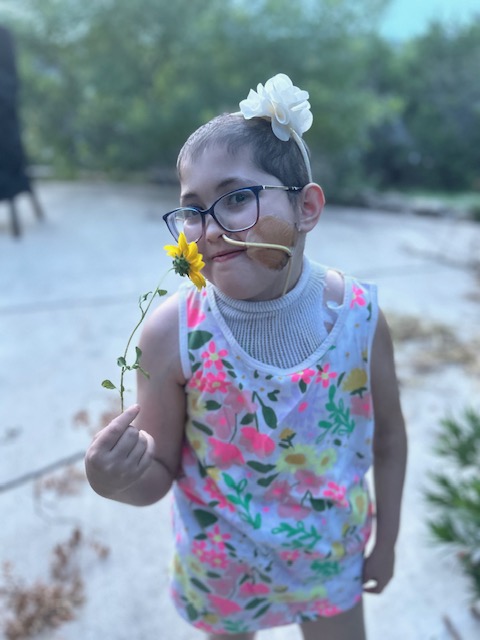 The calendar turned, but Neely’s condition did not follow suit. She needed to be life-flighted to Omaha. In mid-January, things were looking dire, and the weather in the Midwest was not cooperating. Winter storms and sub-zero temperatures made air travel less safe, so finding a service willing to make the trip from Texas to Nebraska proved to be difficult. Eventually, they did find a pilot, so Josh and Neely boarded for an even-more-tense-than-expected trip north. The rest of the family would drive up separately, hopeful the weather would clear by the time they arrived.
The calendar turned, but Neely’s condition did not follow suit. She needed to be life-flighted to Omaha. In mid-January, things were looking dire, and the weather in the Midwest was not cooperating. Winter storms and sub-zero temperatures made air travel less safe, so finding a service willing to make the trip from Texas to Nebraska proved to be difficult. Eventually, they did find a pilot, so Josh and Neely boarded for an even-more-tense-than-expected trip north. The rest of the family would drive up separately, hopeful the weather would clear by the time they arrived.
When Neely was moved off the plane, Josh’s phone displayed a temperature of 17 below-zero. The winds made it feel 30 below and even farther from home.
The team at Nebraska Medicine was able to stabilize Neely before beginning chemotherapy to treat the PTLD. She wasn’t out of the woods yet, but once the rest of the family arrived, Josh’s mind was beginning to become more at ease.
Once again, the family needed a place to stay together, and once again, the Ronald McDonald House was there. So, the family settled in for what appeared to be a long stay.
Josh and Kat decided to split their time between the hospital with Neely and the House with their other three children. Kat would take the 12-hour day shift, during which she would work remotely while also being present for most of the news from doctors. Josh says, “[Kat] was there throughout all of the madness and beauty of the first shift. She was the front line [for us.]”
Meanwhile, Josh would spend the day with their other kids, many times in the kitchen of the Ronald McDonald House.
At home, with Josh working a full-time job, he didn’t have as much time to spend with his kids or to cook for his kids as he would like. While in the House, he’s taken full advantage of the spacious kitchen and fully stocked pantry – though, Josh mentions, in an extremely Texan moment, “I do need to get some more cumin in here.” Many days, you’d find Josh diligently chopping vegetables or tending to a boiling pot, Neely’s siblings sitting at the counter, the smells of home-cooked comfort hovering overhead, doing all they can to overpower the pangs of fear and uncertainty stirring within.
Neely, like her father, enjoys cooking. Josh works for a restaurant chain, and back in Austin, Neely always loved visiting the kitchens and seeing how simple ingredients can be transformed into something magical. It also gave her more time to spend with her dad, time Josh absolutely cherishes. 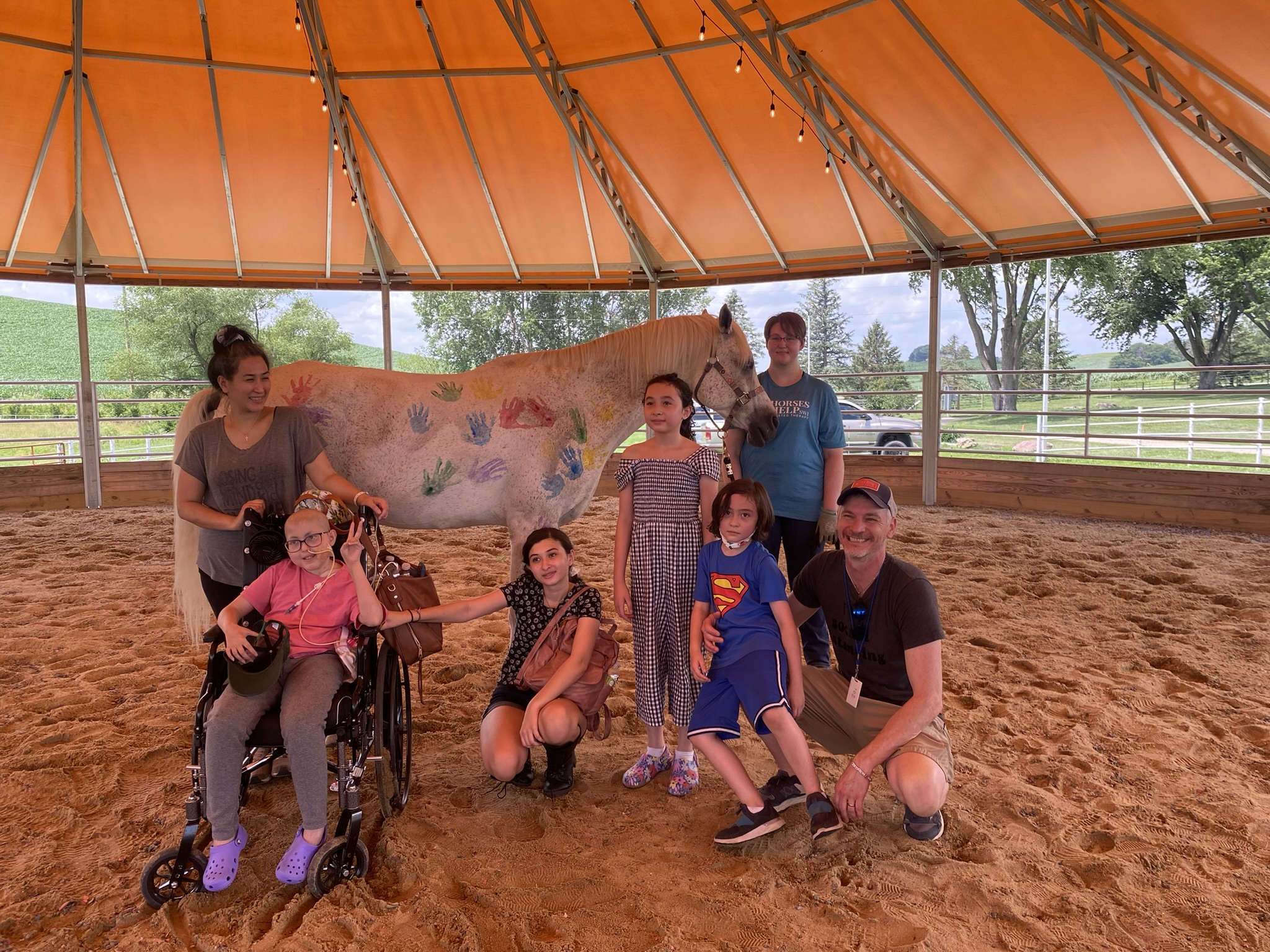
The Lucquetes obviously didn’t want to be in this situation, but Josh says the cooking and other activities together has given him “time I wouldn’t otherwise have had with my family. I get to spend more time with the kids and hear everything they’re talking about.”
Josh adds that cooking has been helpful for him during this hard time, allowing him to focus his energy on something other than worry, something he can get a handle on. Something that feels normal.
To maintain some sense of normalcy, the Lucquetes have attempted to remain just as active in Omaha as they would be in Austin. And thanks to the donors and partners of RMHC, in between visits to the hospital, they’ve been able to visit Omaha’s Henry Doorly Zoo, the Omaha Children’s Museum, and a Creighton baseball game, among other adventures.
After three rounds of chemotherapy, and with the help of her medical team, Neely was discharged at the end of May. It was her first night outside of a hospital since the previous December.
And even though her compromised immune system can make public places more difficult, she’s had the chance to participate in some of those adventures too, including an outing to Horses Help SWI (Josh laughs, “We’re from Texas but my kids rode a horse for the first time in [Council Bluffs, Iowa].”) and karaoke at Stinson Park, on the eve of her birthday, singing a Taylor Swift song with her sisters.
Josh notes, “We’re very grateful and thankful there’s a lot of times to celebrate. And so, we take a lot of time to do that.”
Families in circumstances such as these could easily – understandably – find it a challenge to focus on positives, to see any shred of a silver lining in such a dark cloud. The Lucquetes have drawn closer together, relying on their collective strength to keep moving forward.
At one point during the interview for this story, Josh became overwhelmed with emotions. While he attempted to collect himself, Neely, who had been fully immersed in a game on her phone, stopped what she was doing to try and comfort her dad.
A 12-year-old, having gone through all that she’s gone through, recognizing, in that moment, that her dad needed her. In times like these, everyone can use help from someone with a compassionate heart and a shoulder on which to cry.
As Josh says, “I think we should surround ourselves with people who care… [who] could change the world every day. And we’re in a place where you guys are literally doing just that.”
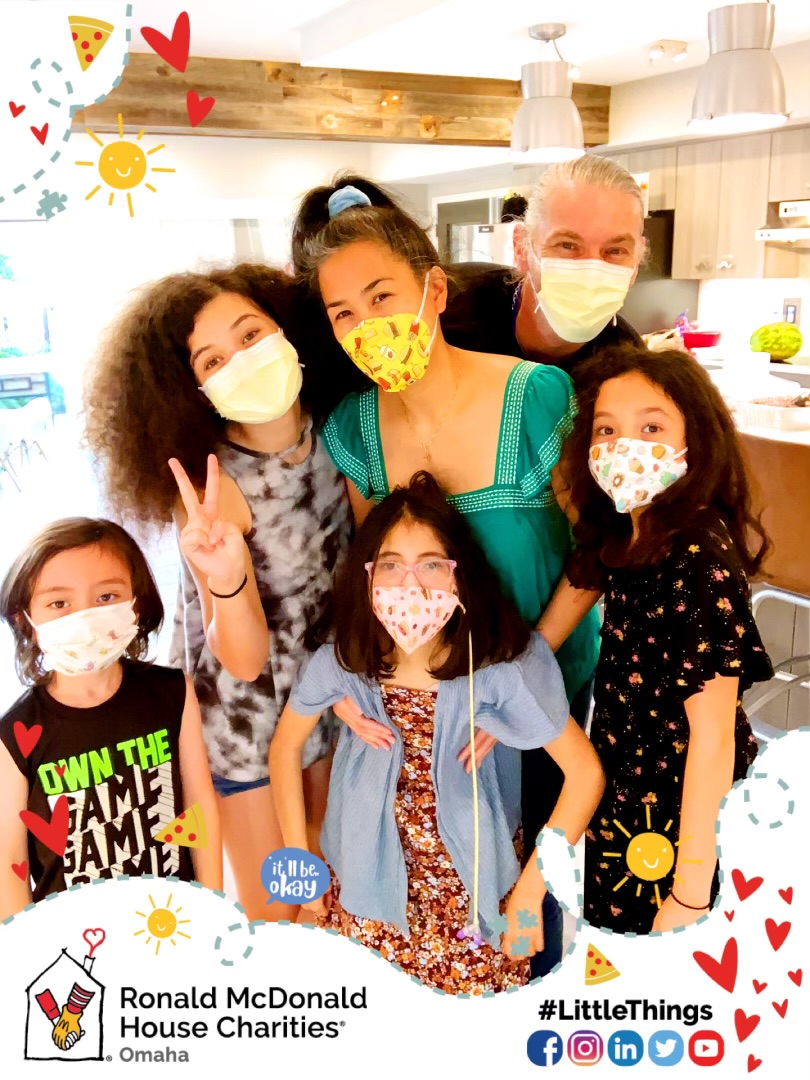
You can make an impact for families like the Lucquetes by donating today.
